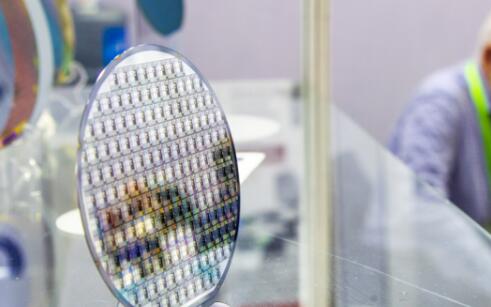According to South Korean media BusinessKorea, TSMC, the world's largest chip foundry, has widened its gap with South Korea's Samsung Electronics. It remains to be seen whether Samsung's "Semiconductor Vision 2030 Plan" can be successfully realized.

TSMC said on its official website on September 10 that its sales reached 122.9 billion Taiwan dollars in August. This figure was 15.8% higher than the same period last year and 16% higher than that in July. In July, its sales were 12.3% lower than that in June.
Previously, TSMC said at the second quarter financial report conference that since May, TSMC has not received any new orders from Huawei, and since September 15, TSMC will not be able to deliver chips to Huawei. Due to the sharp drop in sales in July, insiders said that the US sanctions against Huawei began to affect TSMC's sales, which accounted for 14% of TSMC's annual sales.
However, with the recovery of sales in August, some experts said that the impact of the US sanctions against Huawei on TSMC's sales was not as big as originally expected. In the first eight months of this year, TSMC's cumulative sales reached NT $850 billion, an increase of 30.7% over the same period in 2019.
Therefore, the decline in TSMC's sales in July is believed to be due to concerns about the downturn in the semiconductor market in the second half of 2020, and the decline in semiconductor prices has stimulated TSMC's sales.
The rebound of TSMC's sales in August means that although its supply to Huawei has stopped since May, the company's global customer orders offset Huawei's impact. Therefore, it is unlikely that TSMC's sales will decline significantly. Some experts speculate that TSMC customers such as Apple, Google, Qualcomm, Nvidia, AMD, etc. have increased their orders for TSMC to establish a more stable relationship with TSMC. In fact, TSMC is expanding its business with major American customers such as AMD and Apple. The ARM based CPU of Apple's new Mac model and the A14 processor of iPhone 12 are from TSMC OEM. AMD plans to launch the Zen 3 CPU and Radeon RX6000 GPU series for PCs in October. It is expected that the production of these products will rely on TSMC.
At the same time, some experts speculated that Huawei's orders were placed to TSMC through other semiconductor design companies. MediaTek announced that its sales in August were 32.7 billion US dollars. This figure was 41.9% higher than the same period in 2019 and 22.5% higher than that in July. MediaTek is designing mobile AP and 5G communication modems and outsourcing the production to TSMC.
At the same time, people are also paying attention to Qualcomm's trend. Qualcomm strongly hopes to continue to maintain business ties with Huawei, and is conducting a strong lobbying campaign to win special approval from the U.S. government to export products to China. Qualcomm claims that Huawei will eventually be able to purchase the equipment and devices needed to produce 5G smartphones from non US companies, including Samsung Electronics and MediaTek. However, due to the stricter sanctions of the United States, Samsung Electronics will also stop supplying products to Huawei from September 15.
Huawei accounts for 6% of Samsung Electronics' annual sales. On the other hand, TSMC relies on Huawei for 14% of its annual sales.
As TSMC continues to grow even though it has cut off the deal with Huawei, Samsung Electronics is facing more and more serious challenges. This Korean semiconductor giant is promoting the "Semiconductor 2030 Vision", hoping to become the first in the system semiconductor market by 2030. Samsung recently won a series of OEM orders from major customers including IBM, Qualcomm and Nvidia, but these orders are not enough for the company to catch up with TSMC.
TrendForce, a market research company, predicts that TSMC and Samsung Electronics will account for 53.9% and 17.4% of the global OEM market in the third quarter of 2020. This means that the gap will be further widened from 51.5% and 18.8% in the second quarter. The widening sales gap between the two companies is the reason why some experts believe that the US sanctions against Huawei will not seriously affect TSMC. Therefore, the prospect of Samsung Electronics surpassing TSMC seems less optimistic.
Customer Service QQ
Customer Hotline:
Technical Supports